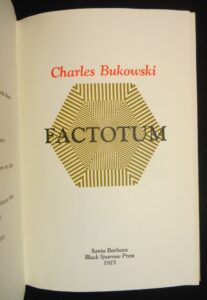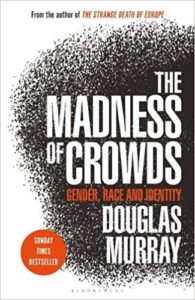What’s FTC Chairwoman Lina Khan Really Up To?

Lina Khan
The FTC is going after OpenAI’s ChatGPT by “investigating” whether the technology may be “harming people” by publishing false information about them.
In a July 13 press release accompanying a civil subpoena, the FTC said it will find out if OpenAI has “engaged in unfair or deceptive practices relating to risks of harm to consumers, including reputational harm.”
As someone that doesn’t take government press releases as gospel, I’m suspicious.
First, since when does the FTC investigate possible future harm-doing? Its job is to investigate current and prosecute current wrongdoings. And that only when there is ample factual evidence of wrongdoing.
Second, the FTC is not in the business of policing speech. Its bailiwick is “trade,” as in the Federal Trade Commission.
Third, even if the FTC had a legitimate reason to investigate and prosecute speech, ChatGPT is not a conveyor of speech – in the sense of ideas and opinions – the way that the media (newspapers, magazines, TV, the internet, etc.) is. It is not – at least at the moment – a being with agency. Like any other tool, a screwdriver, for instance, ChatGPT can be used for all sorts of useful purposes. But it can also be used to hurt people.
Investigating the company behind ChatGPT for speech concerns is like investigating Stanley or Craftsman to determine if screwdrivers could possibly be used to stab someone to death. Doh!
The FTC surely knows this. So why is it doing it?
I see the current excuse – protecting individuals from libel or slander – as patently false. What the government is doing here, I suspect, is looking to get the AI industry under its thumb in any and every way it can, before AI advances to the next level and the government can’t control it anymore.
I don’t think the FTC, or the Biden administration, has any idea of what sort of threat AI is to them, but they want to figure it out. Beginning the investigation with the FTC and a concern that vague is a good, low-key way of moving forward.
I haven’t been using ChatGPT, but I keep promising myself that I will get acquainted with it. It’s already impressive, and it will be getting a major upgrade soon, as the company has just struck a deal with the Associated Press to access the 177-year-old news organization’s text archives. Click here.
The Government’s Digital Dollar Plan Is Moving Apace

Alex Mashinsky
Alex Mashinsky, the founder of Celsius Network, a now-defunct crypto exchange, was arrested last week in NYC and charged with seven federal crimes, including securities fraud, commodities fraud, and market manipulation. In the last three months, the government has gone after at least one major cryptocurrency business a week. The week of June 10, for example, it was Binance and Coinbase.
What, if anything, is going on?
One thing is that some of these companies are engaged in fraud and federal regulators are doing their jobs. Another thing – and this I can’t prove – is what I suggested in the June 8, 2022 issue. It is just one more step of a plan that is already well underway: replacing the paper dollar with a digital dollar, and then using the digital dollar to monitor and control just about everything every single American does or says.
For more on this, click here.
Huge Return on Tiny Collectible
This is the sort of story that inspires millions of amateur collectors to spend weekends browsing thrift stores and garage sales. Here you have a nicely painted but otherwise undistinguished little vase that was bought for $3.30 and later sold at auction for $11,800.

In today’s interconnected world, this is a rare phenomenon, but it’s still fun to read about, if you fancy this sort of thing. Click here.
School Massacres… Where?
The US has led the world in school massacres for as long as I can remember. But now I’m seeing reports of school killings in Europe. And just the other day, I read about six people (including three children) stabbed to death in a kindergarten in southeastern China’s Guangdong province. According to The Hustle, the massacre was one of several similar incidents. At least 17 knife attacks in schools have occurred in China since 2010.
Gun-related murders are extremely rare in China because guns are almost impossible to get. In China, apparently, knives are the mass murderer’s weapon of choice.






